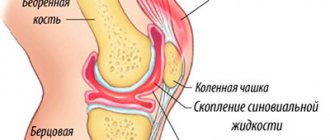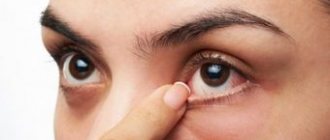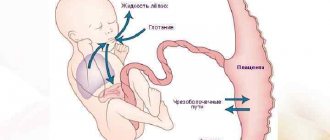Many girls are familiar with the situation when the next day after one accidental overeating, the weight increases sharply. There is no need to panic right away - perhaps this is just a temporary fluid retention. Our article today is about what this concept includes and how to get rid of water in the body. Let's fight together!
Causes and risk factors
All standards are calculated for standard living conditions. However, sometimes even more fluid is needed to prevent dehydration. This primarily applies to people who sweat a lot. And it doesn’t matter what caused it: hot weather, intense training or hormonal imbalances.
You should drink significantly more:
- pregnant women;
- nursing;
- athletes;
- after poisoning accompanied by diarrhea or vomiting;
- after heatstroke;
- during periods of frequent urination.
It is recommended to drink more while on a diet. A person who is losing weight does not receive nutrients in the usual amount. You can’t limit yourself to fluids to avoid metabolic disorders.
Dehydration often accompanies certain diseases. With diarrhea caused by intestinal infections, a large amount of fluid is lost, but alkaline ions are excreted along with it, so acidification of the body, or acidosis, develops. In children, this type of pathology develops rapidly and leads to severe disturbances in the functioning of internal organs. Salmonellosis, cholera and other forms of gastroenteritis can lead to dehydration.
If the disease is accompanied by vomiting, the body loses acid. Therefore, the blood reaction shifts to the alkaline side, which also adversely affects the general condition.
Burns to the surface of the body lead to severe forms of dehydration. In young children, even a 1st degree burn, when hyperemia of an area of the body occurs, may already be accompanied by loss of fluid. With more severe burns, when a bubble with interstitial fluid appears at the site of injury, the body loses a significant amount of blood plasma. A severe form of dehydration develops, which without treatment is fatal.
Loss of fluid is observed in diabetes mellitus, diabetes insipidus, and Addison's disease. Therefore, if left untreated, these pathologies can lead to severe dehydration. The risk increases in older people.
Dehydration can result from uncontrolled use of diuretics. They are prescribed to patients with hypertension, but some women use diuretics to reduce body weight. With constant use of pills, the body loses a lot of fluid and electrolytes, and severe disturbances in the functioning of the heart appear.
Don't downplay swelling
If the swelling that occurs is temporary and goes away after changing habits, then most likely there is no reason to worry. But persistent swelling should not be underestimated, as it can be a symptom of dangerous diseases. Persistent swelling of the lower extremities may indicate problems with circulation and diseases such as varicose veins and deep vein thrombosis. Edema can also be a symptom of kidney and liver disease. Swelling of the face, especially in the eyelids and cheeks, as well as swelling of the hands are often a symptom of a thyroid disorder. Therefore, with this symptom, you urgently need to see a urologist and endocrinologist.
ONLINE REGISTRATION at the DIANA clinic
You can sign up by calling the toll-free phone number 8-800-707-15-60 or filling out the contact form. In this case, we will contact you ourselves.
How much water does the body need?
There are many opinions on this matter. At the same time, myths appear, following which can be harmful to health. According to experts from the World Health Organization, there cannot be a single standard of water consumption for all people.
Discard unsubstantiated recommendations that you need to drink two to three liters a day or eight glasses, not taking into account tea, coffee and liquids from food. When determining the individual norm, one should rely on body weight and age.
For every kilogram of weight you need:
- children weighing up to 10 kg – 4 ml of water per hour;
- children weighing up to 20 kg – 1000-1500 ml per day;
- adults and adolescents heavier than 20 kg – 1500 ml per day for the first 20 kg + 20 ml for each subsequent kilogram.
If a person weighs 50 kg, then 1500 ml + 20 ml * 30 kg = 2100 ml of liquid per day is required. But you shouldn’t limit or force yourself. You feel thirsty - drink, you can’t swallow another drop - forget about the numbers. The body knows best when it needs water.
Daily salt intake
Doctors recommend not to exceed the daily dose of salt in the amount of 2.5 grams. This figure includes salt consumed from all foods, and not just that used when adding salt to cooked food.
It is recommended to reduce the norm to 1.5 grams for diseases such as:
- diabetes;
- high blood pressure;
- cardiac ischemia.
If you see E in the composition of the additive (401, 301, 500, 211, 524, 485, 331, 339, 485), you should know that such a product will definitely retain water, because it contains salt.
Examples of foods high in salt (in grams per 100g):
- soy sauce – 5;
- mayonnaise – 2-3;
- ketchup – 1.5-1.8;
- sausage, frankfurters – 1.3-1.8;
- chips – 1-1.7;
- olives – 1.5;
- cheese – 0.9-1.3;
- fast food products – 1-1.2;
- crackers – 0.8-1.2;
- sauerkraut – 0.8;
- canned fish – 0.4-0.6;
- seaweed – 0.55;
- canned meat – 0.5-0.7;
- canned vegetables (peas, corn, beans) 0.4-0.7;
- bread – 0.45.
This is a list of the most common foods that retain water in the human body. Such food will damage your health and cause swelling. It is better to minimize the above and exclude fast food, chips and crackers from the diet altogether.
Diagnosis of dehydration
It is a mistake to believe that thirst is a sign of dehydration. The body, long before entering a pathological state, begins to signal the need to replenish reserves.
The simplest test for fluid content in the body. Pinch the skin on the back of your hand. If the fold straightens out immediately, there is enough water; if it persists, it’s time to drink.
The kidneys process a maximum of 100 ml per hour, so under normal conditions it is not so easy to bring yourself to dehydration. If a person finds himself in a situation where he is deprived of any sources of fluid, his body will react with specific symptoms:
- loss of body weight (more than three percent);
- pale skin;
- sunken eyes;
- decrease in temperature;
- increased heart rate;
- decreased volume of urine or its complete absence;
- lack of saliva;
- swollen tongue;
- difficulty swallowing;
- cold sweat.
In such a situation, the blood thickens and the acid-base balance is disturbed. It is important to establish a complete picture of biochemical changes for proper restoration of the body.
The diagnosis of dehydration is not independent; it accompanies a disease that has led to excessive fluid loss. Therefore, special diagnostic methods are rarely used. In severe patients who have been in hospital for a long time, control weighing is used. If there is a sudden loss of body weight and additional symptoms, dehydration is suspected. Control weighing can be used for athletes during intense training.
Dehydration is accompanied by loss of blood electrolytes and changes in acid-base balance. Therefore, when symptoms appear, a biochemical study of blood electrolytes, urea and nitrogen is carried out. If a state of metabolic alkolosis (alkalinization) is observed, then it is necessary to know the levels of chlorides in the urine.
In case of cardiac or chronic renal failure, both dehydration itself and the subsequent sharp increase in the volume of fluid in the blood are dangerous. Therefore, such patients undergo invasive measurements of central venous pressure and pulmonary artery wedge pressure.
Diagnosis of dehydration by the level of electrolytes in urine and its osmolality is not always informative. In patients with healthy kidneys, sodium is retained well in the body for a long time, so it does not appear in the urine in high concentrations.
If dehydration is combined with metabolic alkolosis, the kidneys excrete more sodium to remove excess bicarbonate, which alkalinizes the blood.
Getting enough sleep
Scientists have proven that adequate sleep is important for metabolism, along with physical activity and diet.
During sleep, the sympathetic nervous system activates the kidneys, which regulate the amount of sodium and fluid in the tissues. Adequate sleep regulates fluid levels and reduces water retention by subcutaneous tissue. On average, you need to sleep about 7-9 hours a day.
Complications from dehydration
The greatest danger is dehydration in children and the elderly. The child’s body contains a large amount of fluid, so a loss of just 10% already leads to severe disruptions in the functioning of internal organs.
Regardless of the causes of dehydration, vital ions are lost, which are responsible for maintaining acid-base balance in the body and participate in the contraction of the heart muscle. Fluid loss leads to decreased renal blood flow. In response, the kidneys release the hormone vasopressin, which causes vasospasm throughout the body and increases blood pressure.
Blood flow to vital organs increases, but due to the redistribution of blood, other organs do not receive the required amount of oxygen and nutrients, and there are risks of disruption to their functioning. Gradually, blood pressure drops, blood supply to the heart muscle decreases, and the pumping function of the heart worsens. This leads to an even greater decrease in blood pressure and the development of ischemia of the kidneys, lungs, and brain.
This is how hypovolemic shock is formed. This condition is characterized by:
- weakness;
- pale skin;
- slow and muffled heartbeat;
- mental disorders, sometimes pathological agitation;
- clouding of consciousness;
- coma.
If left untreated, hypovolemic shock may result in DIC syndrome. This is disseminated intravascular coagulation. Complications of dehydration result in death.
Stress Reduction
Constant stress increases the concentration of the hormone cortisol in the blood plasma. One of its effects is water retention in tissues, which causes swelling. This is because the stress hormone stimulates the activity of ADH (antidiuretic hormone), which retains fluid. The basis of the work of ADH is signals to the kidneys about salt retention, which automatically provokes retention - less urine is released, water remains in the tissues and subcutaneous tissue.
Eliminating stress helps normalize the functioning of ADH, relieves its negative effects on the kidneys, allowing urine to be produced more actively, removing excess moisture.
Eating Selected Healthy Foods
The easiest way to remove water from the body for weight loss is to eat more foods that regulate fluid balance (especially those rich in potassium)
. This mineral stimulates the kidneys to excrete excess sodium, and with it, water.
- Dark green leafy vegetables
- Beans
- Bananas
- Avocado
- Tomatoes
- Yogurt or other dairy products.
Magnesium supplements or products containing the following substances help in the fight against edema
- dark chocolate;
- dark green leafy vegetables;
- nuts and whole grains.
There are a number of herbal products that have a mild diuretic effect:
- corn silk;
- horsetail;
- parsley;
- hibiscus;
- garlic;
- fennel;
- nettle.
Although fluid retention does not cause bloating or discomfort, limited consumption of foods that cause flatulence is also beneficial for edema. The dangerous group includes highly processed foods with sufficient fiber content, beans and dairy products (with lactose). It is worth choosing low FODMAP foods for a while to see the effect.
Reducing carbohydrates
Another option for removing excess water from the body. Simple sugars are stored in the muscles and liver in the form of glycogen, which also retains water in the tissues. For every gram of glycogen in the body, there are 3-4 grams of water. This explains why people immediately lose weight when they switch to a low-carb diet, which reduces glycogen stores.
Carbohydrates also stimulate an increase in insulin levels, which increases sodium retention and water reabsorption in the kidneys. Low-carbohydrate diets cause insulin levels to decrease and excess sodium and water to be introduced into the kidneys. Try changing your carbohydrate intake and see how the swelling goes down.









